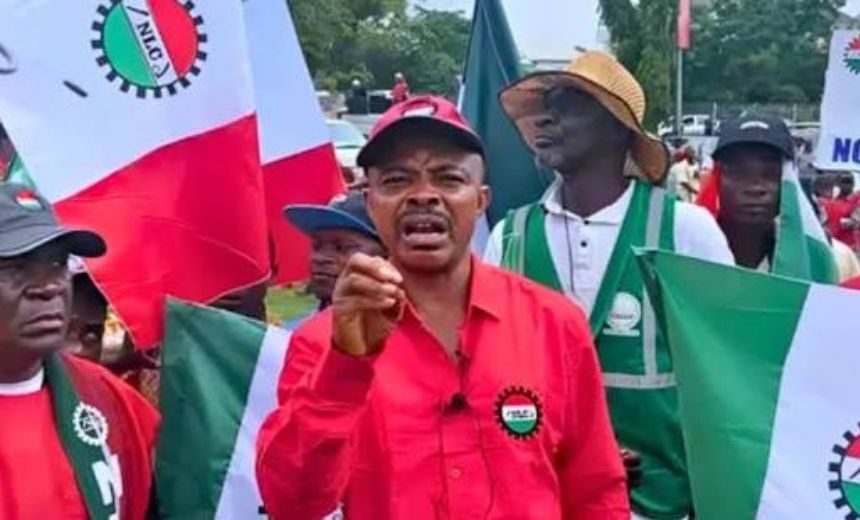The Nigeria Labour Congress, long a pillar of workers’ advocacy and social protest, is facing an internal reckoning.
What began as disagreements over tactics and leadership has spiraled into calls for the removal of its National President.
This crisis comes against the backdrop of Nigeria’s economic turbulence — soaring inflation, a rising cost of living, and mounting discontent among workers.
For many, the NLC’s inability to deliver meaningful gains for workers in recent protest campaigns has eroded confidence.
Now, internal critics say the union’s leader no longer enjoys the trust of rank-and-file members and allied civil society bodies.
A coalition of civil society organisations, under the Campaign for the Protection of Workers’ Rights in Nigeria, has called on the President of the Nigeria Labour Congress (NLC), Comrade Joe Ajaero, to resign from the union.
The National Coordinator of the coalition, Comrade Abubakar Ado, made the call in Kano, at a press briefing with the theme, “NLC Meddlesomeness in the Affairs of the Senate: A Call for Caution”.
The coalition said Nigerians expected the NLC to address issues of insecurity, inflation and the welfare of workers, instead of championing a political cause.
President Ajaero is accused of a “lack of leadership, integrity, and transparency,” and say he has lost the confidence of the labor movement.
These critics argue that despite repeated strikes and protests, the NLC has failed to win concrete gains for workers — pushing the union’s credibility ever lower.
Among union affiliates, discontent is deep. Some see certain protest initiatives as halfhearted; others lament that Ajaero has been too political, entangling the NLC in partisan disputes.
On the flip side, Ajaero and his backers insist he remains committed to the struggle. When AIT NEWS spoke to Mr. Ajaero on Wednesday, he described the agitators calling for his resignation as fringe groups that have little or no relevance within the NLC and vowed to press on with the fight for a living wage and social justice.
But the discord has real consequences. In August 2024, when the NLC President faced threats of arrest, allied unions threatened to shut down the national grid or telecom services in solidarity. This indicates how deeply the conflict has rippled across labor ranks.
Meanwhile, the Federal Government — under increasing pressure from organized labor — watches closely.
Negotiations over the national minimum wage, electricity tariffs, and other contentious policies are set to resume in 2026.
MUST READ: NLC to Mobilise Against Senate for Return of Senator Natasha
As the NLC’s internal fracture deepens, ordinary workers feel squeezed — caught between the chaos at leadership and the burden of rising prices.
Divisions like these aren’t new to large unions — but they become existential when they sully public confidence, when the very cause of labor is questioned. The NLC was once seen as a moral force; right now, that legacy is under threat.
(Editor: Anoyoyo Ogiagboviogie)








